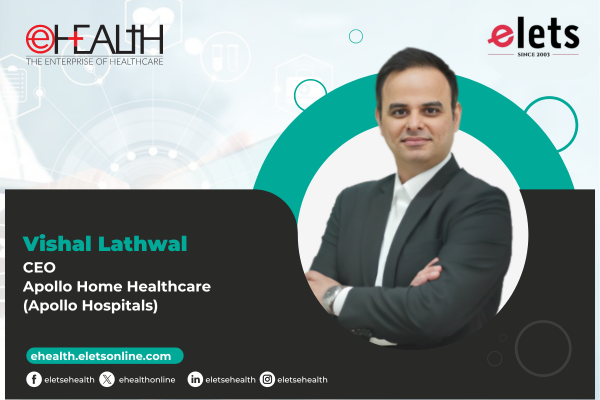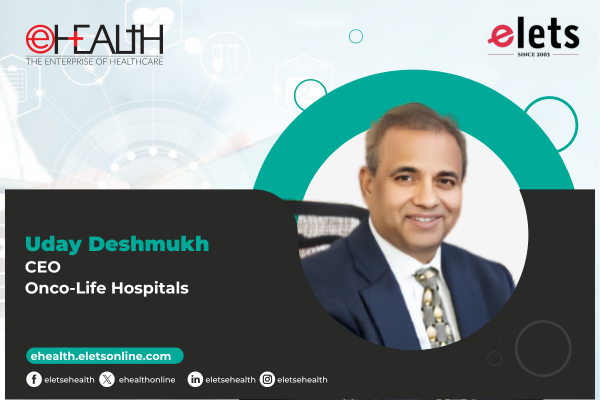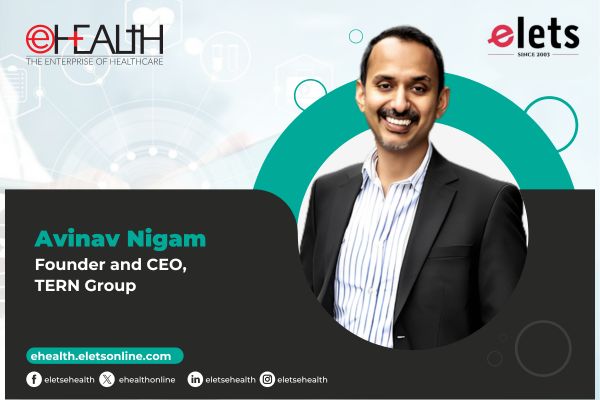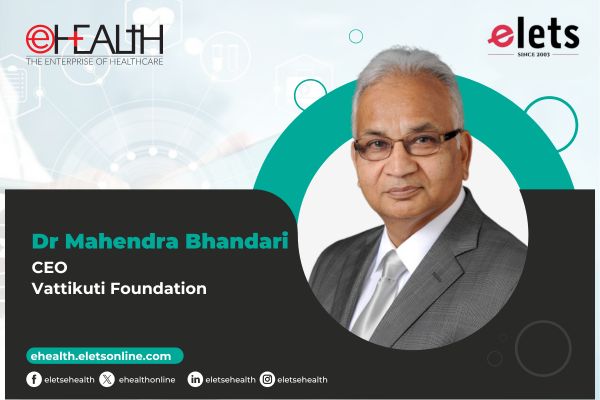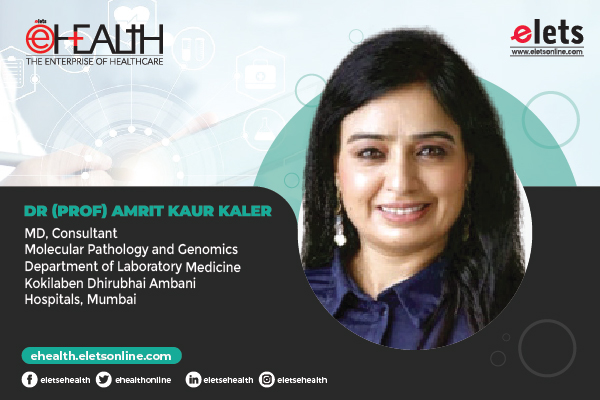
New technologies and the need for healthcare are revolutionising the healthcare industry in several ways. Artificial Intelligence is enabling healthcare providers to use predictive analytics to identify patients who are at risk of developing certain conditions based on whole genome sequencing, shares Dr (Prof) Amrit Kaur Kaler, MD, Consultant, Molecular Pathology and Genomics Department of Laboratory medicine, Kokilaben Dhirubhai Ambani Hospitals, Mumbai with Kaanchi Chawla of Elets News Network (ENN). Edited excerpts:
In what ways can technology be used to improve healthcare infrastructure and address gaps in service delivery, such as telemedicine and virtual healthcare?

Healthcare providers should invest in technology to improve the delivery of healthcare services. Adopting new technologies such as telemedicine, and electronic health records helps in improving the efficiency, accessibility, and quality of healthcare services.

Telemedicine: Telemedicine involves the use of technology to deliver medical care and health education remotely. With telemedicine, doctors can consult with patients and diagnose and treat various illnesses and conditions without having to be physically present with them. It can improve healthcare infrastructure by providing access to care in remote or underserved areas, reducing costs and wait times, and increasing patient convenience. This can help to improve access to healthcare in remote and underserved areas, where there may be a shortage of medical professionals.

Virtual Healthcare: Virtual healthcare helps in enhancing healthcare system by providing access to healthcare system through the use of digital technologies, such as video conferencing, mobile apps, and wearable devices. This can help to improve patient outcomes by providing service in remote areas and in the comfort of their own homes for terminally ill patients. For example, virtual healthcare can be used to monitor patients with chronic illnesses, such as diabetes, cancer and provide them with personalised care plans.

Electronic Health Records (EHRs) are another interest area with a tremendous scope for improvement which gives quick access to patients’ medical history, diagnoses, test results, and treatments. This digital access can improve healthcare professionals and patients clinical information by improving the quality of care.
Health Information Systems help to manage and organise patient data, track patient progress and outcomes, monitor medication and treatment regimens, and manage their workload more efficiently.
What steps can be taken to ensure that the healthcare system remains responsive to the evolving needs and expectations of patients and stakeholders, and how can feedback and data be used to inform continuous improvement in this sector?
Engaging patients and stakeholders in the decision-making process regarding healthcare services, policies, and programs. Prioritising and analysing patient feedback help identify their needs and expectations and help to identify areas of improvement and make necessary changes. Regularly monitoring patient satisfaction and feedback through surveys, feedback forms, and focus groups help identify trends and patterns. Analysing this data will help healthcare providers to identify areas for improvement and prioritise the changes needed to meet patient needs. Foster collaboration and coordination among healthcare providers with policymakers to improve the quality, safety, and affordability of healthcare services. Highlighting the need for preventive care, health education, and lifestyle changes in order to shift the focus of healthcare from treatment to prevention.
Artificial Intelligence, Big Data, and Digitalisation are accelerating the healthcare sector and enabling businesses to enhance medication development and patient care. How are new technologies and the need for healthcare changing the industry?
New technologies and the need for healthcare are revolutionising the healthcare industry in several ways. Here are some of the ways that new technologies and the need for healthcare are changing the industry:
Artificial Intelligence is enabling healthcare providers to use predictive analytics to identify patients who are at risk of developing certain conditions based on whole genome sequencing. This can help to prevent the onset of certain diseases and improve patient outcomes. Digitalisation is enabling healthcare providers to offer personalised treatment plans for patients. By collecting and analysing data on a patient’s medical history and lifestyle, healthcare providers can tailor treatment plans to meet the specific needs of individual patients. Artificial Intelligence and Big Data are helping researchers to accelerate the development of new medications. These technologies enable researchers to analyse vast amounts of data and identify new patterns, which can lead to the discovery of new treatments.
Overall, new technologies and the need for healthcare are driving innovation and improving patient outcomes in the healthcare industry. As these technologies continue to evolve, we can expect to see even more significant changes in the healthcare sector in the coming years.
How can healthcare infrastructure be designed to support the ongoing development and training of healthcare professionals, and ensure a robust and sustainable healthcare workforce?
Establishing a culture of continuous learning by developing mentorship and coaching programs can help healthcare professionals to learn from experienced colleagues and receive feedback on their performance. These programs can also provide support and guidance for career advancement and succession planning. Utilising technology for training and development provide online training, simulations, and other interactive learning experiences. This can help healthcare professionals to stay up-to-date on the latest research and best practices, regardless of their location. Investing in research and innovation can help healthcare professionals to stay current with emerging technologies and treatments. This can also create opportunities for staff to participate in research studies and contribute to the development of new treatments and therapies. Healthcare organisations should prioritise ongoing professional development and create a culture of continuous learning. This can be achieved by providing regular training opportunities, encouraging staff to attend conferences & workshops, and incorporating ongoing education into staff performance reviews. By implementing these strategies, healthcare organisations can support the ongoing development and training of healthcare professionals, and ensure a robust and sustainable healthcare workforce.
What role can digital health technologies play in transforming the healthcare system, and what steps can be taken to promote the adoption and integration of these technologies?
Digital health technologies have the potential to transform the healthcare system in several ways. They can improve patient outcomes, increase efficiency, reduce costs, and provide more personalised care.
For example, telemedicine can allow patients to receive care remotely, and wearables can monitor vital signs and provide real-time health data. To promote the adoption and integration of digital health technologies, the following steps can be taken:
- Educate healthcare professionals to understand the benefits of digital health technologies and how to use them effectively.
- Educational programs can be created to train healthcare providers on how to use these technologies.
- Partnerships can be established between healthcare providers and technology companies to develop and integrate digital health technologies.
- The government and private organisations can increase funding for research and development of digital health technologies.
- Regulations can be developed to ensure the safety and effectiveness of digital health technologies.
The public needs to be educated on the benefits of digital health technologies and how to use them. Awareness campaigns can be launched to inform people about these technologies and their potential impact on their health. Overall, the successful adoption and integration of digital health technologies require collaboration between healthcare providers, technology companies, government agencies, and patients.
Be a part of Elets Collaborative Initiatives. Join Us for Upcoming Events and explore business opportunities. Like us on Facebook , connect with us on LinkedIn and follow us on Twitter , Instagram.
"Exciting news! Elets technomedia is now on WhatsApp Channels Subscribe today by clicking the link and stay updated with the latest insights!" Click here!






